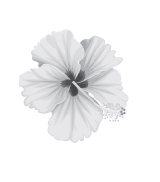
CHAPTER THIRTEEN
AT our private tap lesson with Katharine, Bonnie said she felt the energy of dancing come back to her despite not being able to get the right sound with her gym shoes. Katharine taught us the routine the Tap Cats were doing and praised us for our progress.
After the class Katharine stayed in the recreation room to refine the routine while Bonnie took me to see the unit.
Drop sheets covered the floor and the furniture. The morning sun gleamed on the lids of the paint tins stacked in the middle of the room. The unit looked large with the off-white undercoat and a large mirror leaning against one wall reflected the sea view.
‘Did Katharine tell you I’m writing an article on adoption and I’d like to talk to you about your experience?’ I asked.
‘She did. Why this sudden interest in adoption?’ Bonnie sounded annoyed.
‘It’s because of the government apology, which has been in the news again.’
‘It’s just a bunch of politicians trying to get publicity from the plight of another downtrodden group,’ said Bonnie. ‘What do they think they’ll achieve?’
‘They could make things better.’
‘They can’t give us back all the years we didn’t have our child.’
‘It might not be enough but at least there was a formal apology,’ I said, scrambling to find a way to convince Bonnie to open up to me. ‘And now the governments reckon they are looking at what more support they can give. It’s important that people who were affected are part of the conversation.’
‘Okay, okay. No need to harangue me. I get the point.’ Bonnie suggested we conduct the interview right then in the unit across the landing which she and Katharine were now using.
The unit was painted in shades of grey with a colourful scatter rug and cushions adding a bright touch. We sat on the charcoal lounge, me with my notepad and Bonnie with a turquoise cushion on her lap.
‘I’m so glad you agreed to do this interview,’ I said. ‘Can you tell me more about Katharine’s adoption?’
‘Before we do, there’s a ground rule,’ said Bonnie. ‘I don’t want you to use names and any identifying information is to be removed. Is that understood?’
‘Why?’
‘That’s none of your business. Do you agree or do we stop now?’
‘I think I can write something without using your name.’
‘And you let me know when it is being published.’
I agreed, turned on the recorder and began the interview.
‘The Senate Enquiry report says that there were different ways forced adoption occurred, including physical force, lack of informed consent and consent under duress. What was your experience?’
‘Everyone just assumed the baby would be adopted out and I felt I had no choice,’ said Bonnie. ‘So, I guess you’d say it was a mix of the last two. There was absolutely no information, no support and no other options.’
‘I understand that, at the time Katharine was adopted, many mothers didn’t even see their children. Did you?’ I asked Bonnie.
‘Not really. I caught sight of the baby but didn’t know she was a girl.’
Bonnie rose and searched in the cupboard for a water jug and glasses. She took a large mouthful of her water and spluttered.
‘Are you all right?’
Bonnie nodded.
‘So, you didn’t know you had a daughter?’
Bonnie shook her head, finished her water and sighed. ‘At the time it had been so unreal, and no one ever talked about what had happened.’
‘I read that a common reaction to such loss is avoidance and numbing.’ I showed Bonnie a copy of the report. ‘This includes avoiding reminders of the event and even being unable to remember the trauma or important parts of the trauma.’
Bonnie picked up the water jug and refilled her glass. After the birth, she’d tried to drown her memories by drinking and partying until the whole episode had become like a dream or a story someone had told her.
‘Did you get any support from your family or friends?’ Bonnie shook her head. ‘Really? What about Carol and Sofia? Grandma says you’ve been friends since primary school.’
‘We have, but they didn’t know about it,’ said Bonnie. ‘You have to understand things were different then. There was so much shame and stigma attached to being an unmarried mother. My family just swept it under the carpet and pretended it never happened. And I kept the secret all those years.’ Bonnie’s bracelets jingled as she wiped her eyes with the back of her hand. ‘But I could never completely bury my memories.’